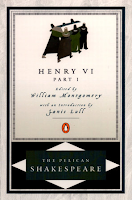The unfathomable suffering and agony in her poor eyes--that was what drew his own naked soul up into the light. Gone was everything he had thought and intended and decided. He sensed that great and weighty things had now all but vanished from his mind; he was incapable of holding on to them. What remained was only the latest and deepest cruel certainty that she was the flesh of his flesh and life of his life, and no matter how mistreated and despoiled and broken she might be, it could never be otherwise. Their life's roots had been entwined from the first moment he could remember. And now he saw how death had seized hold of her with both hands, he felt as if he too had barely managed to escape from being torn apart. Then a longing came over him so forcefully that it shook him to his very core--a longing to pull her desperately close, to hide both her and himself.
For many years I have had a December tradition of reading one of Sigrid Undset's Kristin Lavransdatter novels. First, in the older, more archaic Charles Archer translation; then in Tiina Nunally's (superior) modern translation. This year, it felt like time to move on, not from the tradition, but to one of Undset's other books of medieval Norway. (I also read it at the end of November, not December, but it's pretty cold outside, and besides, I'm stuck at home with COVID and really needed something to seek my teeth into.) Vows, titled in other translations as The Axe, is the first of a series named either for its male protagonist Olav Audunsson, or for his title, The Master of Hestviken, and it follows Olav as he pursues the fulfillment of the promise of marriage his father made with that of his beloved, Ingun Steinfinnsdatter.
In many ways, Olav and Ingunn are like the anti-Kristin and anti-Erland. Whereas Kristin seeks to be released from her engagement to good-hearted Simon Darre so that she may marry the impetuous older man, Olav and Ingunn want nothing more than to fulfill the agreement their parents made: on his deathbed, Olav's father entrusted his son to Steinfinn, who would raise him as a son until he came of age, and then marry Ingunn. But plans change: Steinfinn and his wife Ingeborg are transformed by a cruel attack by Ingeborg's former betrothed, which leaves them both vengeful and withdrawn. Steinfinn has his vengeance, but receives a mortal wound in the process, and after his death, Ingunn's uncles are not so keen to fulfill a promise they know nothing about, and want to marry Ingunn to someone who will provide them a strong alliance. Olav and Ingunn force the uncles' hand by sleeping together, thus binding the marriage in the eyes of the local bishop, but theirs is a Norway in a state of constant change, and the power of the bishops is no guarantee. Olav only make things worse when he kills one of Ingunn's brothers in a fit of anger, and becomes an outlaw.
The story of Vows is one of patience and toil: Olav and Ingunn strive and wait for nearly a decade for their rights to be recognized, and for them to be permitted to live together at Olav's ancestral house at Hestviken. It must be said that neither character has the charisma of Kristin, with her preternatural loveliness and purity, or of outrageous Erland. Olav is sullen and sort of humorless, and Ingunn's principle character trait is her psychological fragility: after being separated from Olav, she becomes briefly psychosomatically paralyzed. But there's no doubt that they fit together, as they believe. Olav's single-minded insistence on claiming what's his by right, Ingunn's deep need for Olav's protection, these drive them together as much as any vow or legal status, and the social, political, and personal factors that drive them apart seem all the more horrible and cruel.
Like Kristin Lavransdatter, Vows only works to the extent that you are really willing to believe in the validity of Olav and Ingunn's marriage, which is cemented only by a promise and--forgive me--a penetration. Over and over again, people in the couple's lives try to convince them to settle for a different marriage, or an agreement to go their separate ways. In practice, this would actually be quite easy, it seems, but you have to believe, as Olav and Ingunn believe, that their marriage is something that exists between them and God, and that it cannot be abolished or supplanted. Undset's novel is clearly on the side of the Church in its skirmishes with powerful landholders like Ingunn's uncles, who resent the imposition of its laws over their feudal ones. And you must believe what a horrible violation it is when--spoiler alert--Ingunn allows herself to be seduced by a happy-go-lucky Icelander in Olav's long absence.
Olav and Ingunn battle heroically against the forces that would have them break their vow. But it is possible, perhaps, to go too far even in protecting one's marriage vows. Olav's killing of Ingunn's brother Einar, for which he ultimately is able to pay the acceptable murder-price, is one such moment. But another comes at the novel's climax, when Olav is approached by the Icelander, hoping that he will release his claim on Ingunn. Olav agrees to ski with the Icelander to the far estate of Olav's friend Arnvid, on the pretense of asking for his support. Then, in a woodland hut--and again, spoiler alert--he bashes the Icelander's head in with an axe. In the novel's final scene, Olav burns the hut down with the Icelander's body inside, realizing that he's left his treasured--and well-known--axe inside, and we are left to wonder if Olav hasn't finally committed a violation of God's law that is too cold, too cruel to come back from, one that will sunder him from Ingunn forever.










